Xenograft Disease Models and Specialized Preclinical Services
Our xenograft disease models are meticulously designed to support the selection of promising therapeutic molecules in drug development. Validating lead compounds early in the pipeline is essential for informed decisions on further investments in lead optimization. Our comprehensive services include in vitro and in vivo efficacy screening and proof-of-concept (PoC) studies, utilizing rigorously validated disease models to yield high-value insights in a single study. Our goal is to streamline your research efforts by minimizing unsuitable candidates, generating actionable data, and enabling the strategic design of regulatory studies tailored to your therapeutic targets.
Cancer Disease Models
We offer a diverse portfolio of cell line-derived xenograft (CDX) and patient-derived xenograft (PDX) models in rodents for in vivo drug evaluation across multiple cancer types. Our models cover a range of tumor types, including breast, prostate, colon, pancreatic, blood, kidney, ovarian, and thyroid cancers. With extensive expertise in animal models, our research team is equipped to assess drug efficacy, investigate potential toxicity, and validate biomarkers.
Our orthotopic xenograft models simulate the human tumor microenvironment by implanting tumors into anatomically relevant sites in mice, providing a robust platform for studying tumor growth, invasion, and metastatic potential under therapeutic influence. These models are particularly valuable for examining anti-metastatic properties of drug candidates, offering insights into how drugs interact with specific tumor environments.
Our subcutaneous CDX models allow investigation of the molecular mechanisms of action in tumors implanted subcutaneously, making them ideal for studying drug pharmacodynamics. Notable cell lines used in these models include:
- Breast Cancer: MCF-7, MX-1, MDA-MB-231, BT-474
- Colon Cancer: HT-29, COLO-205, HCT-116, SW-620
- Skin Melanoma: WM-266-4, A-375, COLO-829
- Kidney Cancer: A498, 786, Caki-1
- Brain Tumors: LN229, SF268, SF295, SF539, SK-N-AS, SNB-19, SNB-75, U-251 MG, U87 MG, U118, U87-Luc
- Gastric Cancer: AGS, HS746T, MKN-45, NCI-N87, SNU-16, SGC-7901, SNU5
- Hepatocellular / Liver Cancer: H22, Hepa1-6, Hep3B, HepG2, SK-HEP1, SMMC-7721, HUH7, SNU-398
- Blood Cells Cancer: A20, DOHH2, EL-4, HL-60, K-562, Karpas-299, MOLM-13, Ramos, Raji, MOLT4, Daudi, Granta519, H929, OPM2, RL
- Lung Cancer: A549, Calu-3, Calu-6, H226, H460, H1155, Huh7, NCI-H226, NCI-H1975, DMS273, LL2, NCI-H522
- Other Cancers: FaDu, HeLa, SAS, 8505C, ECC1, FTC238, MFE280, MSTO211H, NTERA2, SW780
- Ovarian Cancer: OV-CAR3, SKOV-3, TOV-21G
- Pancreatic Cancer: AsPC-1, BxPc-3, MIAPaCa-2, PANC-1, Capan1
- Prostate Cancer: DU-145, LNCaP, PC-3
- Kidney Cancer: 786-O, A498, Caki-1, HEK-293, Renca, G401, RXF393
- Sarcoma: SJSA-1, S180, HT1080
Altogen Labs offers a comprehensive suite of validated CDX xenograft models, spanning multiple tumor types for preclinical research. Each model is rigorously validated for reproducibility and reliability. With over 100 validated xenograft models, we offer a comprehensive list for various tumor types, including both commercially available and custom models from sources such as ATCC and DSMZ. Additionally, we collaborate on custom projects using client-provided or commercially sourced cell lines to meet specific research objectives.
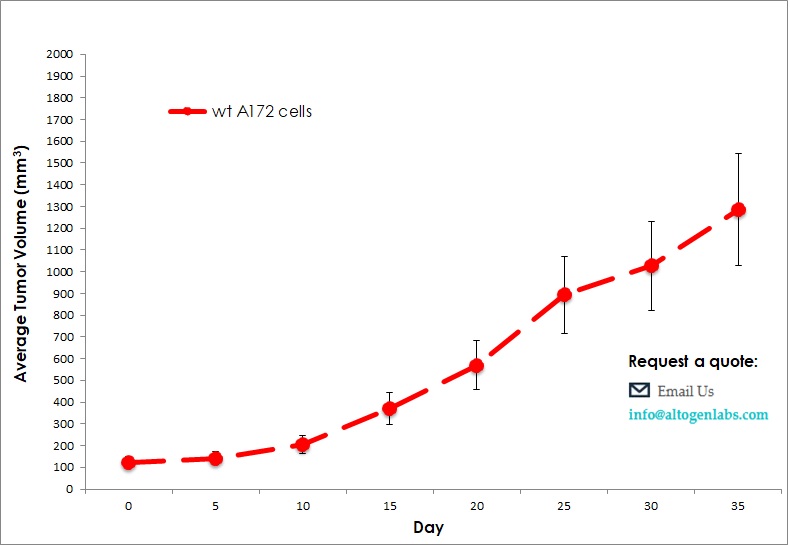
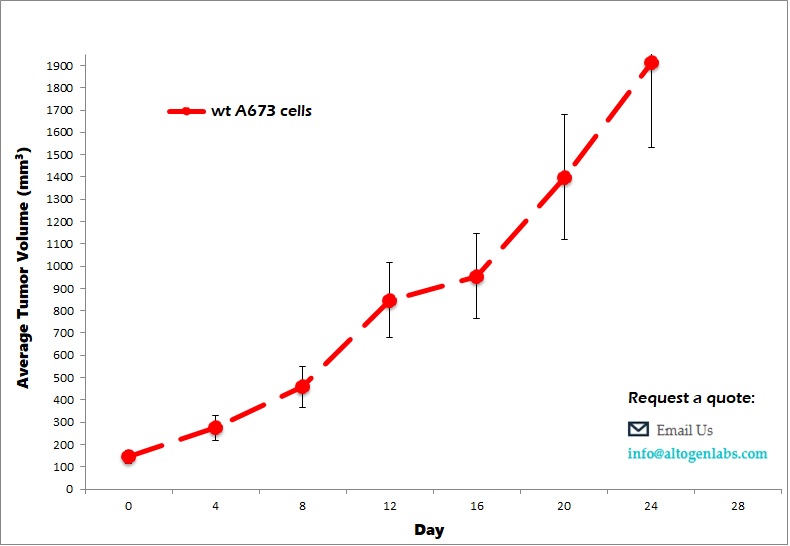
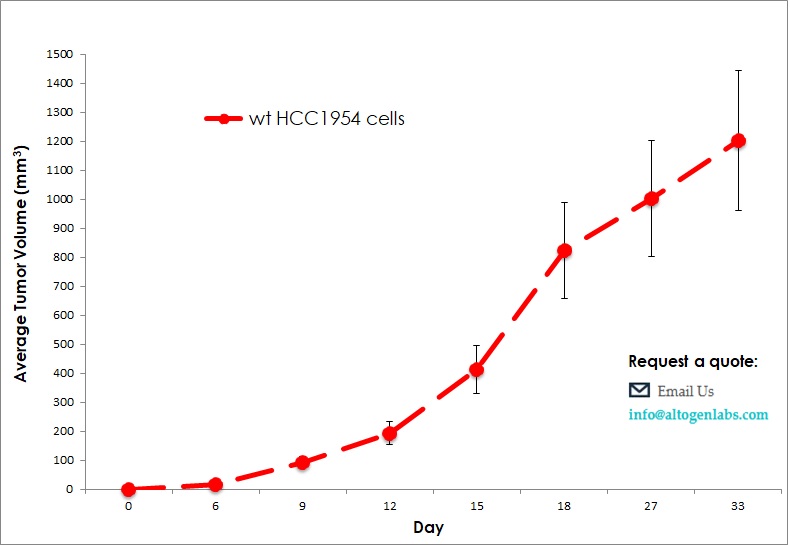
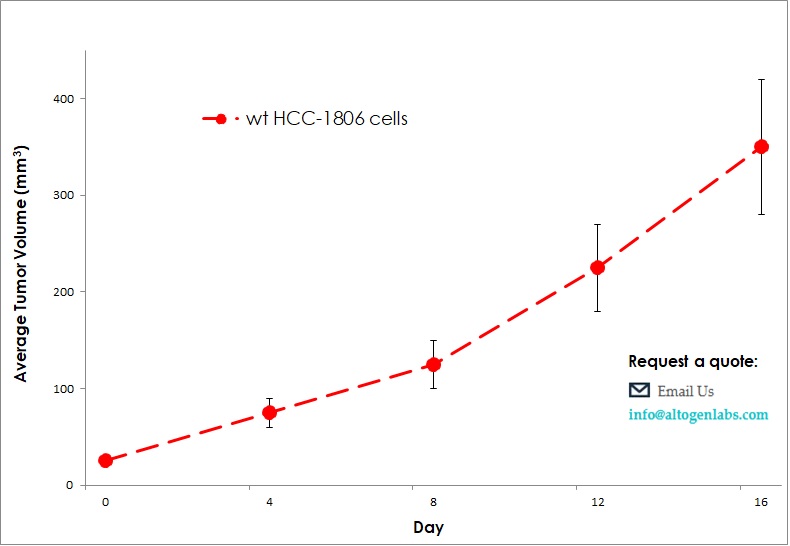
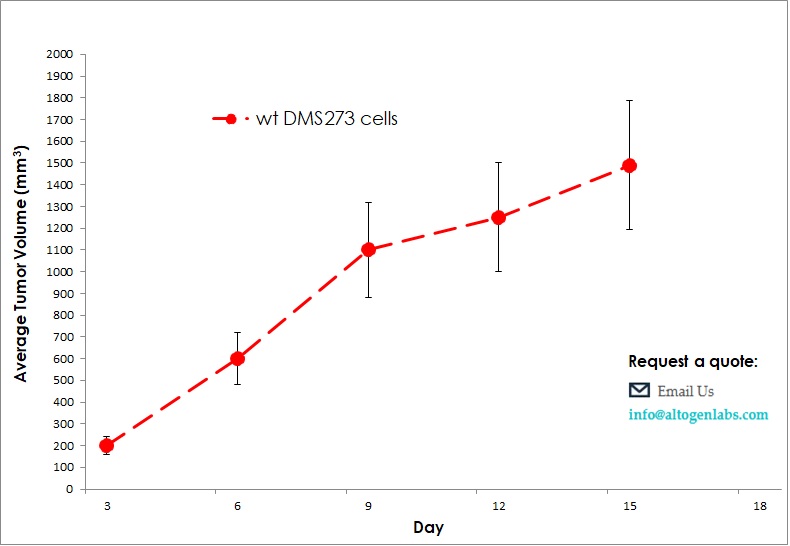
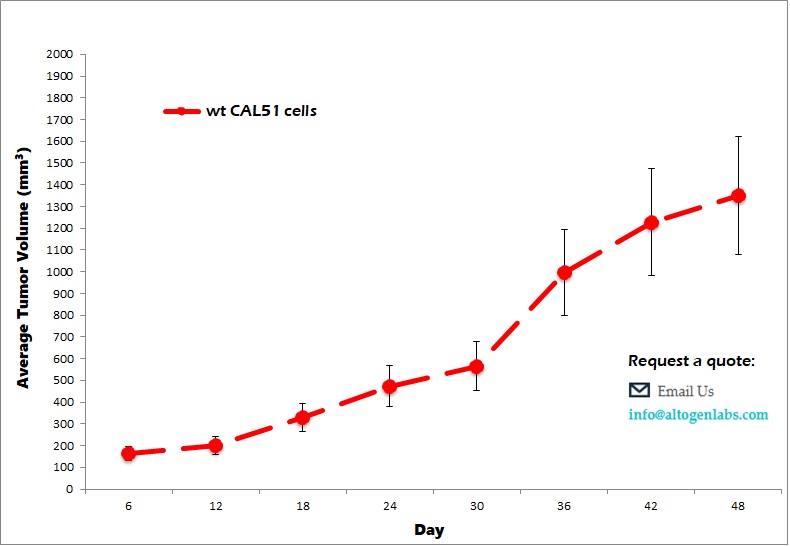
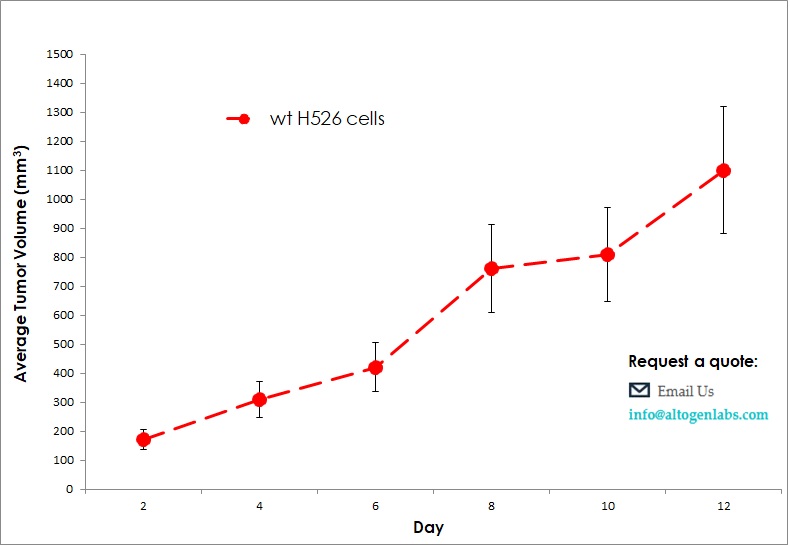
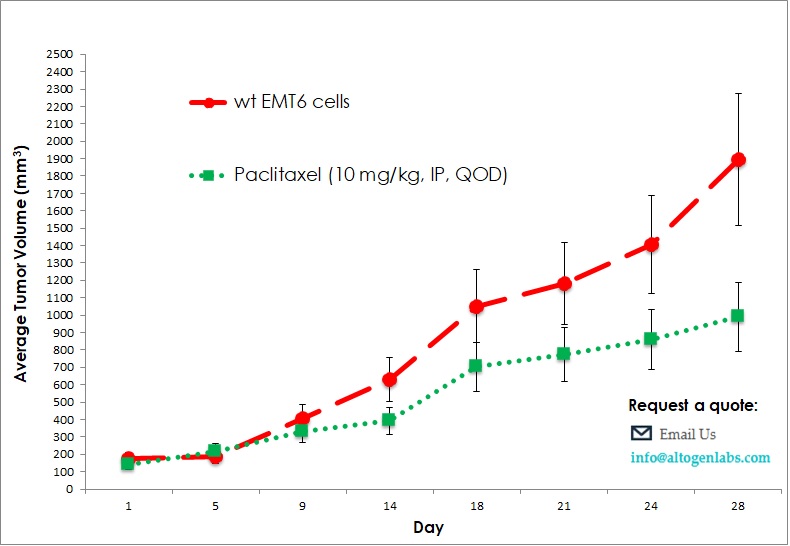
Metabolic Disease Models
Metabolic dysfunctions play a critical role in the pathogenesis of diabetes, cardiovascular disease, and certain cancers, driven largely by glucose metabolism alterations. Our metabolic disease models leverage in vivo xenograft systems to provide data on glucose metabolism in minimally stressed rodent models, crucial for understanding drug safety profiles, therapeutic mechanisms, and potential translational applications.
Our metabolic research services include advanced metabolic profiling and preclinical candidate development support, encompassing studies like:
- Oral Glucose Tolerance Test (OGTT): Assesses the body’s capacity to manage glucose levels post-ingestion, key for evaluating insulin sensitivity.
- Insulin Tolerance Test (ITT): Measures the body’s response to insulin, essential for understanding insulin resistance.
- Hormone and Cytokine Assays: Quantify systemic biomarkers related to metabolic health, including insulin, leptin, and pro-inflammatory cytokines.
- Signal Transduction Studies: Examine molecular pathways, such as PI3K/AKT and MAPK, to understand how drugs modulate metabolic processes.
- Metabolite Analysis: Determine the presence of parent compounds and active metabolites, critical for understanding drug metabolism and efficacy.
Inflammation Disease Models
Inflammatory diseases require precise modulation of immune responses, making inflammation models valuable in assessing drug effects on immunopathology. Our in vivo inflammatory models support drug development efforts targeting inflammation-related pathways, enabling detailed investigation of candidate drugs in a controlled, reproducible environment.
Key models and services include:
- Carrageenan-Induced Paw Edema Model: Widely used for evaluating anti-inflammatory activity by measuring acute inflammation in the paw.
- Collagen-Induced Arthritis Model: Simulates rheumatoid arthritis, allowing assessment of chronic inflammation and joint destruction.
- Adjuvant-Induced Arthritis Model: Provides insights into chronic inflammatory responses and therapeutic efficacy in arthritic conditions.
- LPS-Induced Inflammatory Model: Studies systemic inflammatory response syndrome (SIRS) and sepsis-like conditions through endotoxin (LPS) administration.
Our inflammation models are complemented by detailed hormone and cytokine assays to monitor inflammatory biomarkers, signal transduction assays to analyze intracellular signaling, and metabolite profiling to evaluate the parent compound and its metabolites in the inflammatory context.
By utilizing our broad range of validated disease models and technical expertise, you gain access to a holistic, data-driven approach in preclinical research. Whether focusing on oncology, metabolic disorders, or inflammation, our disease models empower robust, high-resolution insights into candidate efficacy, safety, and mechanistic pathways, guiding your research from discovery through preclinical development.
Contact us and request a contract research study quote at https://altogenlabs.com/request-quote/
Metastatic CDX Models
Altogen Labs also offers metastatic CDX models for specific tumor types, ideal for studying cancer progression and therapeutic efficacy in metastatic contexts.
- Brain Tumors: U87
- Breast Cancer: 4T1
- Colon Cancer: HCT116, HT-29
- Hepatocellular / Liver Cancer: SK-HEP-1
- Leukemia / Lymphoma: A20, EL-4, K-562
- Lung Cancer: A549
- Melanoma: A375, A2058, B16
- Pancreatic Cancer: BxPc-3, MIA PaCa-2
- Prostate Cancer: PC-3
Available Options for Metastatic Models
Altogen Labs provides several specialized services for metastatic CDX models to enhance experimental outcomes:
- Metastasis Measurements: Assessment of metastatic tumor burden through weight or cell count analysis.
- Bioluminescent Imaging: Generation of stable cell lines expressing luciferase for in vivo bioluminescence imaging.
- Drug Resistance Studies: Evaluation of primary and secondary tumor resistance to treatments.
- Genetic Analysis: Comprehensive genetic analysis of both primary and metastatic tumors, including INDEL, SNP, RNA-Seq, and exome sequencing. Samples can be preserved with RNAlater or frozen for sequencing.
These models provide a valuable platform for drug discovery, efficacy testing, and mechanistic studies in oncology research. Contact us and request a contract research study quote at https://altogenlabs.com/request-quote/